Recovery from a Weekend Trip is important: Here’s How I Do It
The Three Pillars of a Successful Recovery
Taking weekend trips away from your host city is a must when studying abroad. These weekend excursions outside your host city and country allow you to get a better feel for the host country’s culture, expand your view of the world, and create unique memories that will help you to cherish your study abroad experience for years.
Living and studying in Sydney grants a unique potential set of destinations to visit. However, because of the size of the country and its isolation, traveling Australia and the Pacific region is uniquely exhausting on your body and mind. For our mid-semester break, a group of friends and I traveled to Southeast Asia. We toured five cities in twelve days. Although this excursion was well worth the effort, the constant movement and time zone changes wore me out.
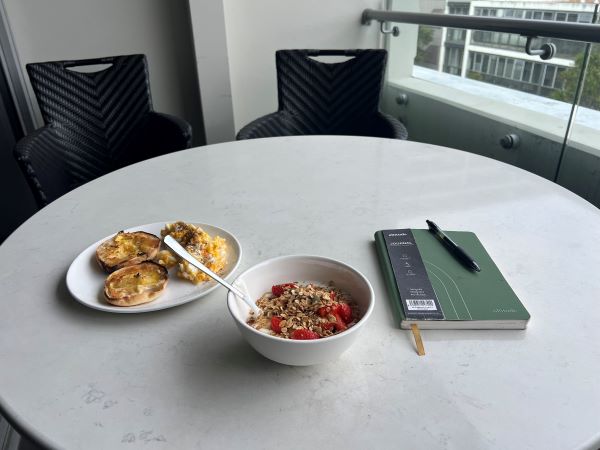
My healthy breakfast after a weekend trip
Learning to take care of yourself while abroad is an integral part of the study abroad experience. Being away from your familiar environment, family, and friends adds unique challenges to your recovery. While everyone experiences homesickness and the stress of culture shock, the added strain of travel can lead to increased fatigue and burnout. Creating a rest and recovery routine is crucial for success when you begin to feel down. Although everyone’s recovery will obviously look different, I am going to touch on a few key tenants that everyone should consider.
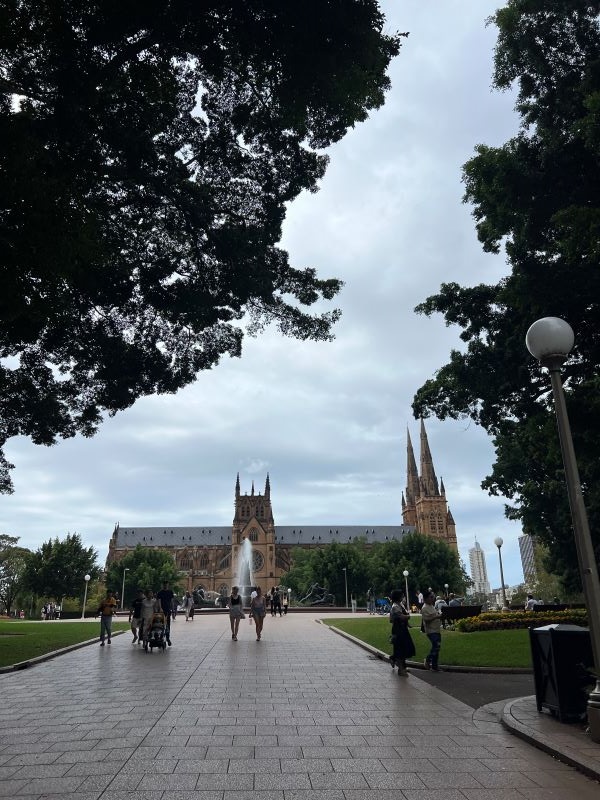
The view of St. James Cathedral from my walk after class
Re-Establish Your Routine
While living in their host city, everyone has a routine, however, traveling can stress and break that routine. After giving yourself space to get the necessary rest, the easiest way to restore yourself is to re-establish your routine. Start by setting your alarm for the same time as usual. Fight the urge to sleep in too many mornings in a row. Opting for an active morning by getting out of bed and making a healthy breakfast will lead to a positive day. In these rest days, give yourself ample time to do schoolwork and basic exercise to let your body ease back into the swing of things.
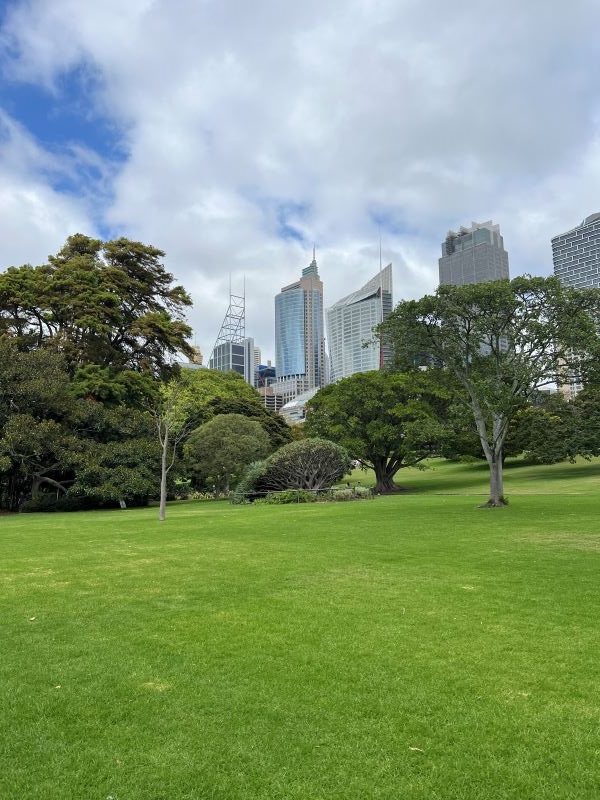
The Botanical Gardens are one of my favorite outdoor rest spots in Sydney
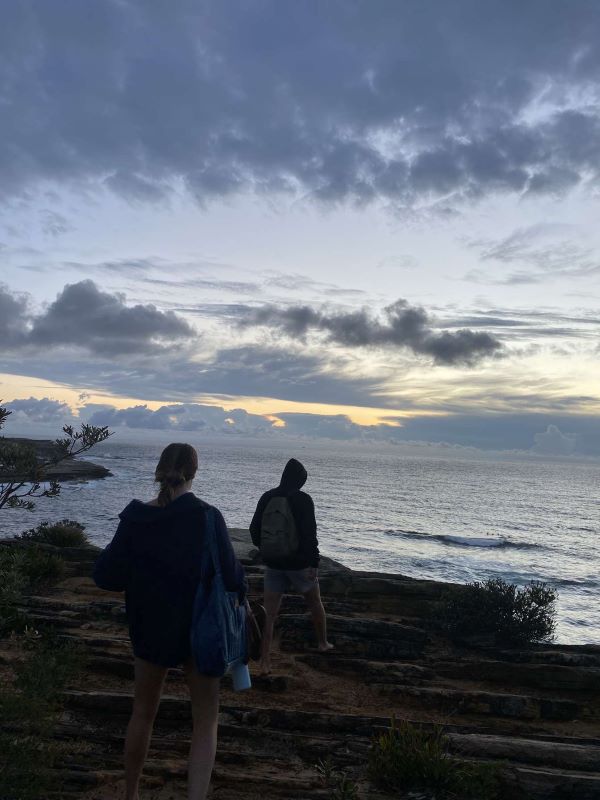
The view from my recovery coastal walk with some friends
Reconnect with your Family and Friends
In all the eventfulness of studying abroad and traveling, you will inevitably lose connection with home, even if only for a short amount of time. You are bound to have many amazing experiences. When you come home drained and exhausted, reconnecting with your family and friends, those who you call home, is essential. Having a chat with my close friends always boosts my morale. A long phone call with Mom can feel just like a warm hug.
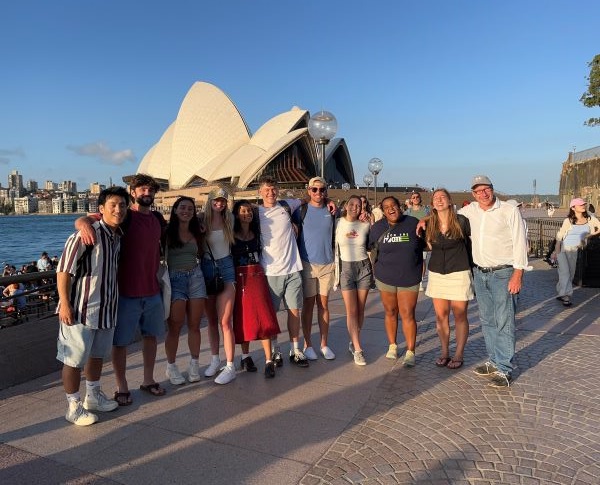
Spending time with others is a natural stress reliever: a picture from a class trip to the Opera House
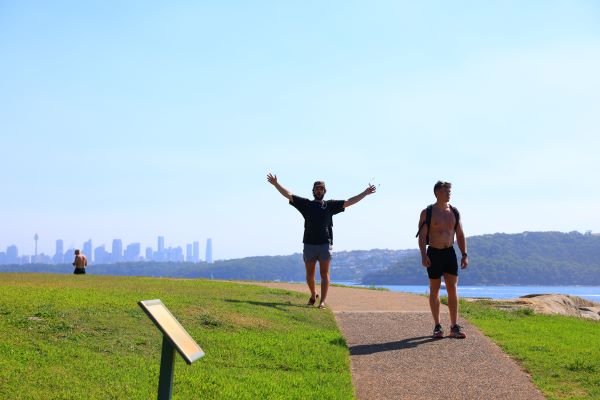
A walk I took near Watsons Bay to get some sun and reflect
Maintain your Physical and Mental Health
Travel is exciting and energizing but it also takes a toll on both the body and mind. Prioritizing my physical and mental well-being is the final step in my recovery after a trip. Although you should try to maximize your study abroad experience, sometimes a night (or two) in after a long trip is necessary. Once you feel rested, exercise both physical and mental are the last hurdle to restoration. Mindful exercise, like walking or running, will help you to reflect on your travel experiences. Personally, I have started going to yoga classes, which help me to rest my mind and body.
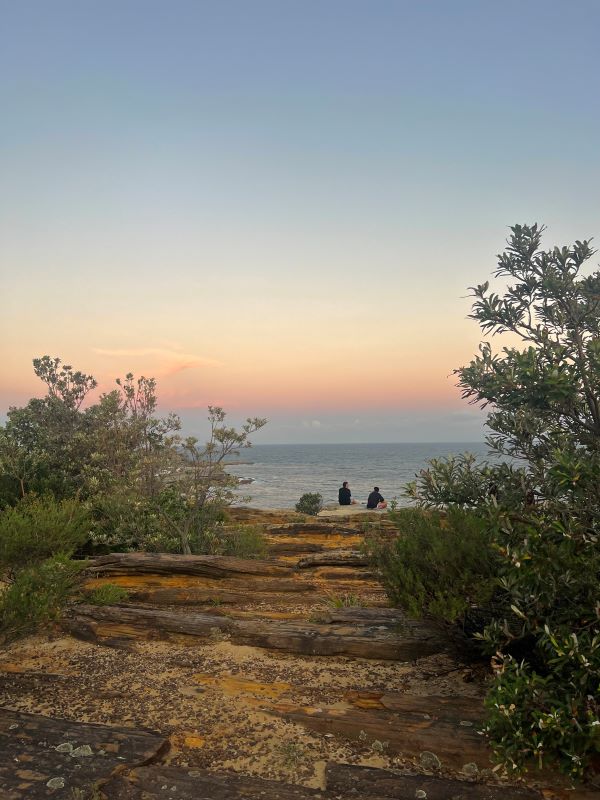
My favorite spot to sit and watch the sunset above Coogee Beach
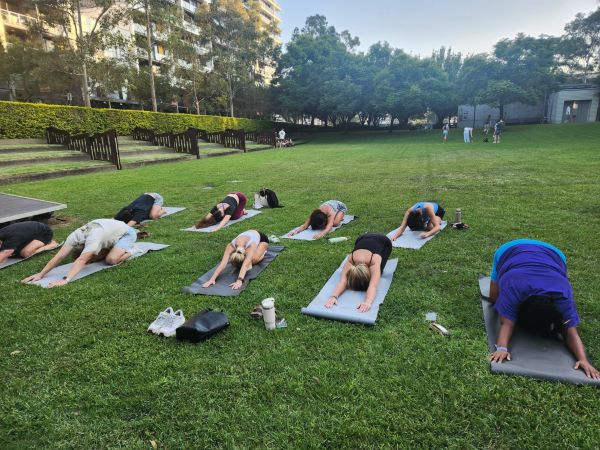
CEA CAPA-sponsored yoga during Wellness Week
Maintaining your mental health is just as important as your physical health. Journaling has been my best friend while in Sydney. I try to journal every day and especially after adventurous trips. During your study abroad experience a lot will happen. You will meet incredible people, do adventurous things and experience quirky, confusing, and unfamiliar ways of life. Daily journaling has helped me to digest these experiences and allows me to unpack them, reflect, and rest. Journaling helps me to remember my travel experiences: the one-off interactions, the meals I’ve eaten and my emotions: both the good and the bad.
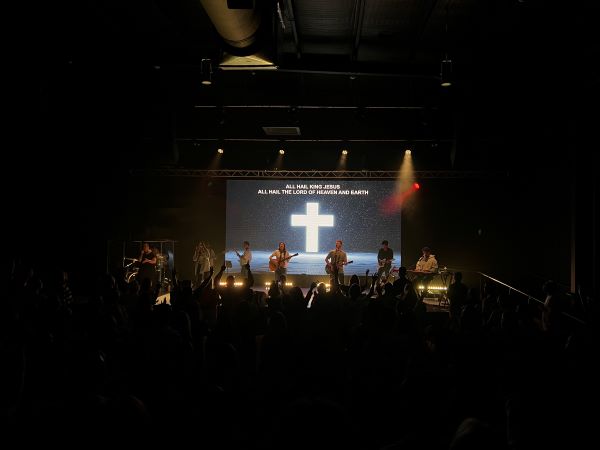
Church service at a local contemporary church
Also, going to church helps me to express gratitude for my experiences and further reflect on my travels. Practicing my religion helps both to deal with the stress that comes with travel but also provides clarity and an outlet to reconnect with myself and God. If you are religious, maintaining your faith while abroad is another step to staying grounded, finding comfort in unfamiliar environments, and deepening your personal growth throughout your journey.











